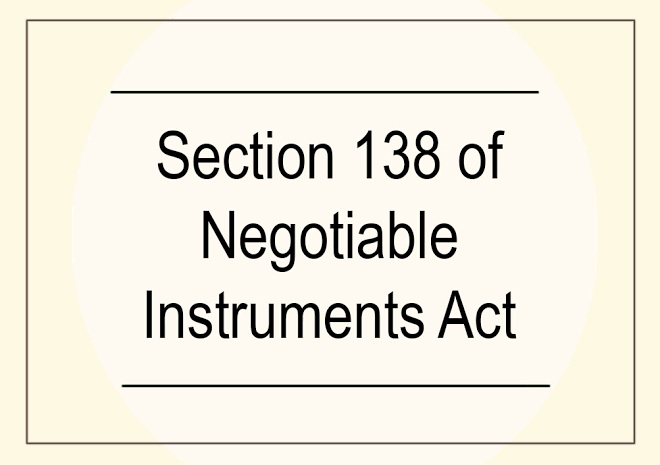Latest Developments on Section 138 of the Negotiable Instruments Act: Supreme Court’s Landmark Clarifications
By: Advocate Prashant Kumar Tomar
Published: August 2025
Introduction
Section 138 of the Negotiable Instruments Act, 1881 (NI Act), deals with the offence of cheque dishonour due to insufficient funds or other related reasons. Over the years, this provision has been frequently litigated, with courts fine-tuning its scope and procedural requirements.
In July 2025, the Supreme Court of India delivered a significant ruling, clarifying the extent to which a complaint under Section 138 can be amended, even after the court has taken cognizance. Alongside this, the Court also revisited the issue of territorial jurisdiction, ensuring uniformity in the filing of cheque bounce cases.
1. Supreme Court Allows Amendments After Cognizance
In a major relief to complainants, the Supreme Court ruled on 25 July 2025 that a complaint under Section 138 can be amended even after cognizance has been taken, provided such an amendment does not cause prejudice to the accused.
The Court explained that procedural rules are meant to aid justice, not obstruct it. Even typographical or clerical corrections—like changing “Desi Ghee” to “Milk” in a case involving payment for goods—can be allowed if they are essential for clarity and accuracy.
“Procedure is a handmaiden of justice, not its mistress.” – Supreme Court, 2025
This judgment prevents cases from failing due to minor, rectifiable errors and reinforces the principle that substance should prevail over form.
2. Territorial Jurisdiction Reaffirmed
In a separate ruling, the Supreme Court reiterated the interpretation of Section 142(2)(a) of the NI Act:
- Cheque dishonour complaints must be filed where the payee’s bank account is maintained.
- The place where the cheque was merely deposited or presented is irrelevant for jurisdiction.
This decision curbs forum-shopping and ensures that proceedings are initiated in the correct judicial forum, reducing unnecessary delays.
3. Historical Context – 2018 Amendments
The NI Act last saw major statutory changes in 2018, when Parliament introduced:
- Section 143A: Empowering trial courts to order interim compensation (up to 20% of the cheque amount) payable by the accused during the pendency of the trial.
- Section 148: Allowing appellate courts to direct the appellant (accused) to deposit at least 20% of the fine or compensation awarded by the trial court before the appeal is heard.
These provisions were designed to discourage frivolous defences, speed up recovery for genuine claimants, and reduce the misuse of the legal process.
4. Practical Implications for Litigants
- For Complainants:
- Minor errors in the complaint can now be corrected even after the case starts.
- Filing in the correct jurisdiction is critical to avoid dismissal.
- For Accused Persons:
- Amendments are permissible, but only if they do not cause prejudice to defence rights.
- Depositing interim compensation may be mandatory at both trial and appeal stages.
Conclusion
The Supreme Court’s July 2025 rulings mark a progressive step in cheque bounce litigation. By allowing post-cognizance amendments and reaffirming jurisdictional clarity, the Court has sought to balance procedural flexibility with fair trial rights.
These developments, coupled with the 2018 amendments, aim to make Section 138 proceedings faster, fairer, and more effective—ensuring that justice is not derailed by technicalities.
Tags: Section 138 NI Act, Cheque Bounce, Negotiable Instruments Act, Supreme Court Judgement 2025, Jurisdiction, Legal Updates India


Leave a Reply
You must be logged in to post a comment.